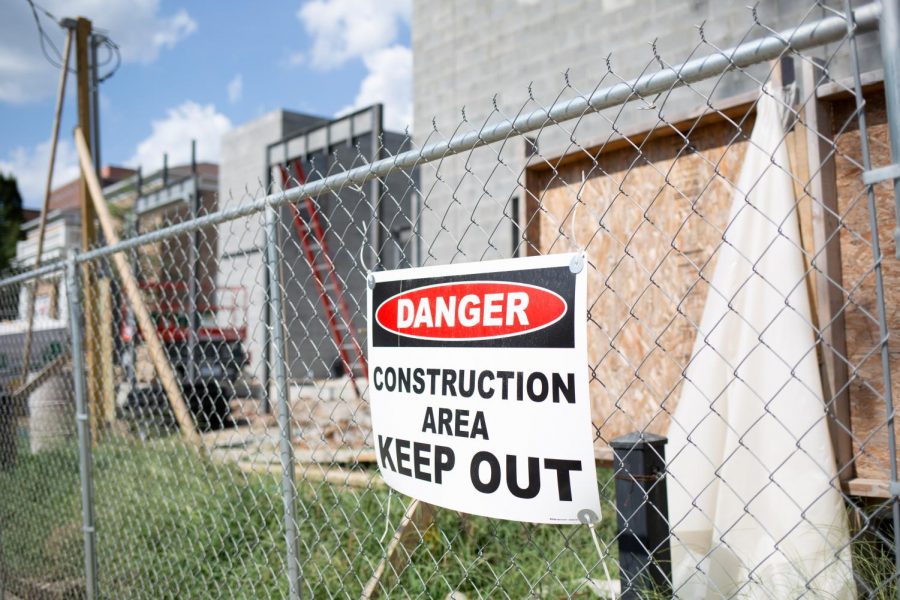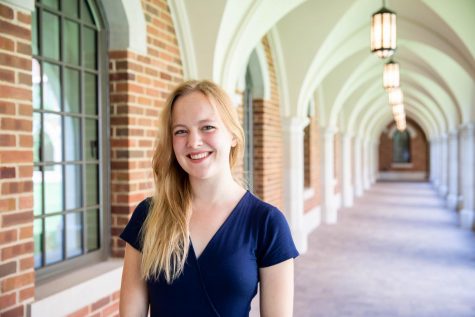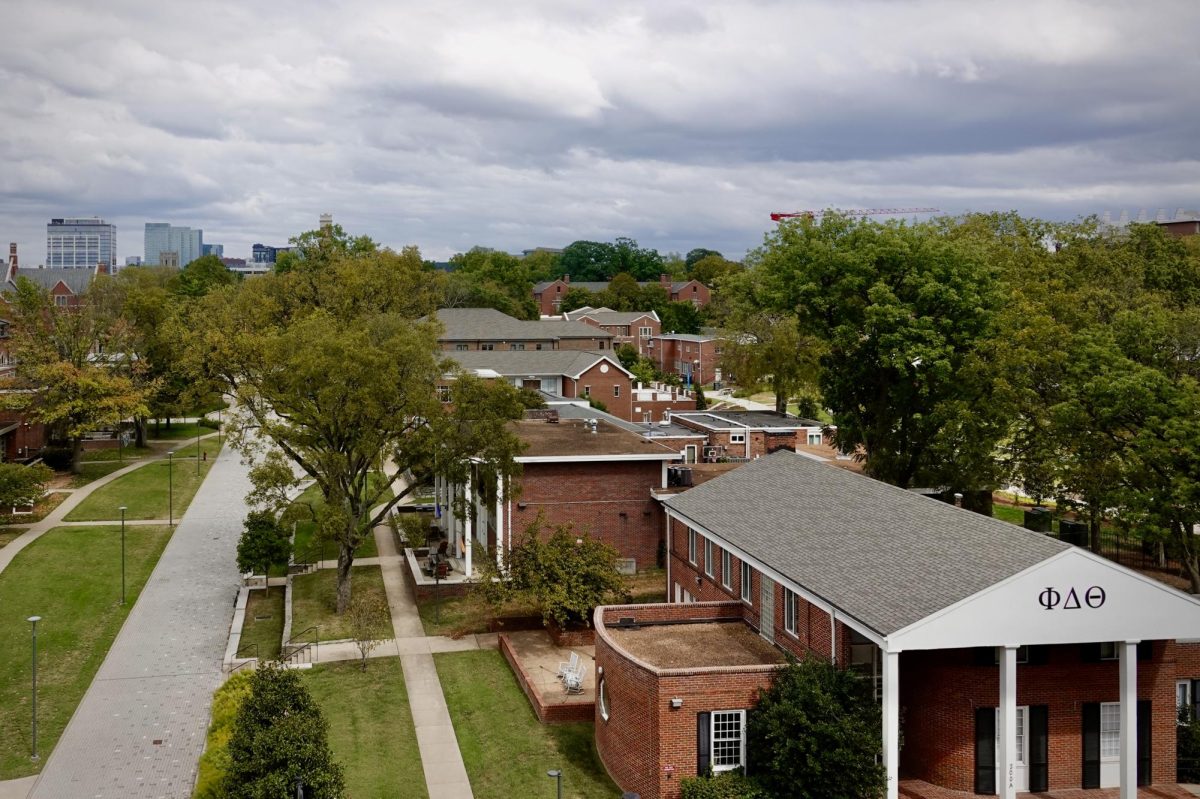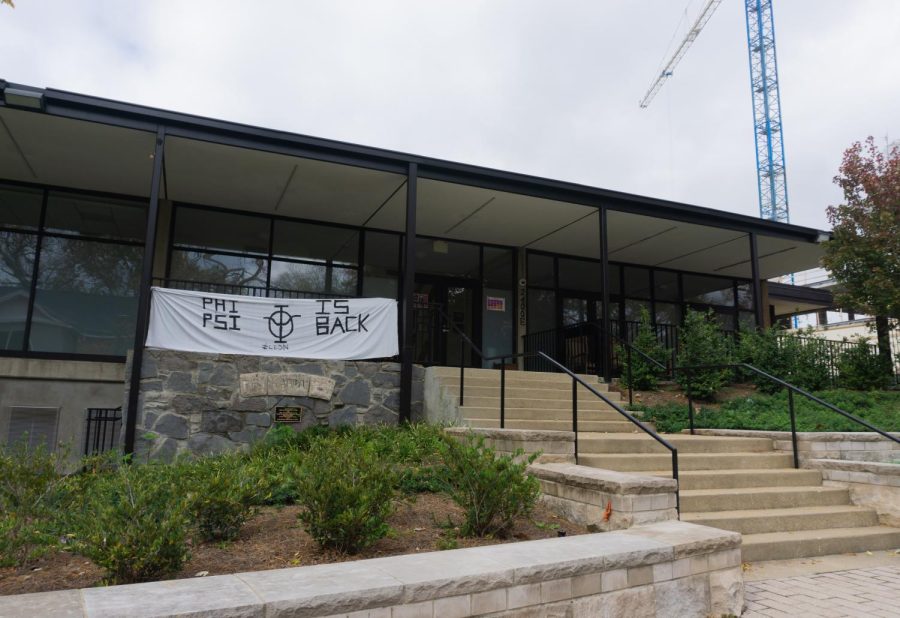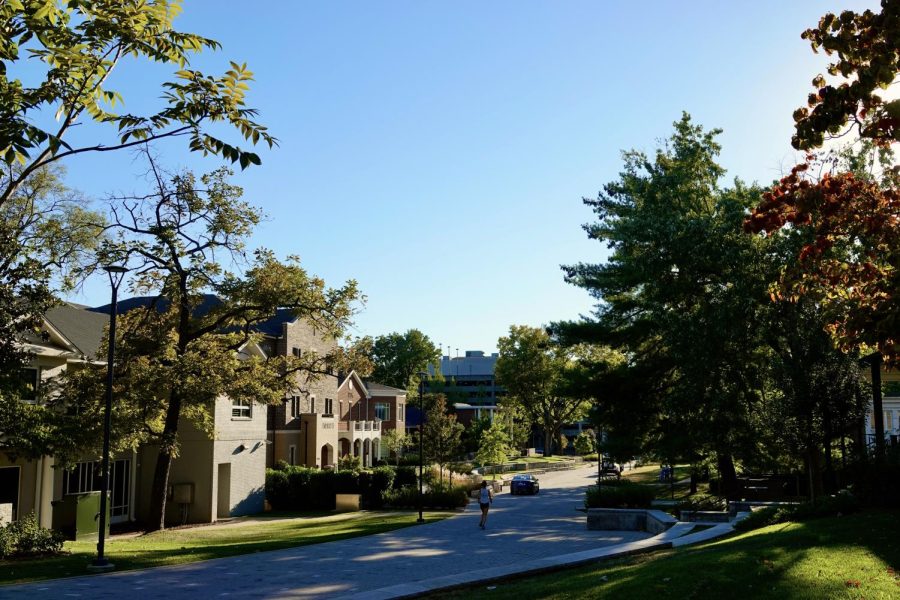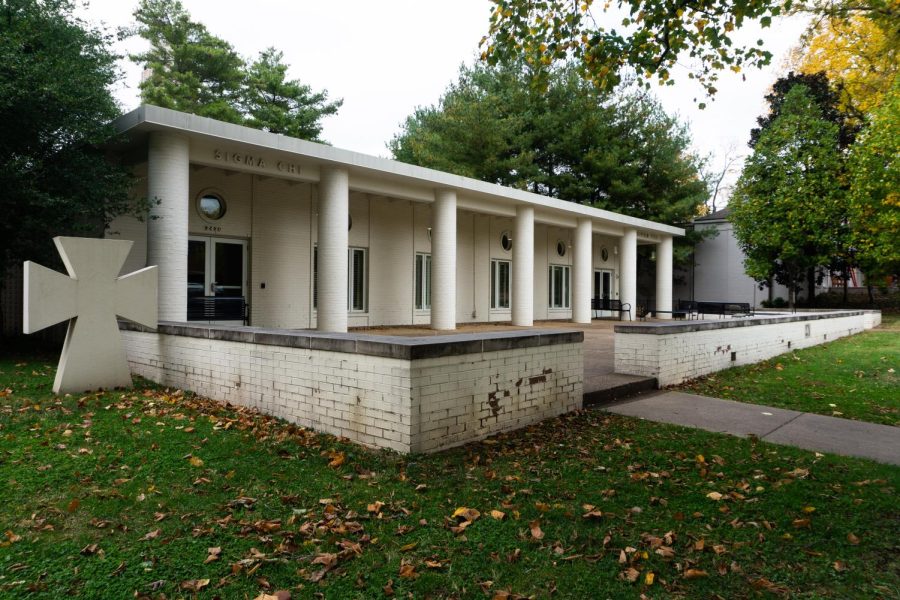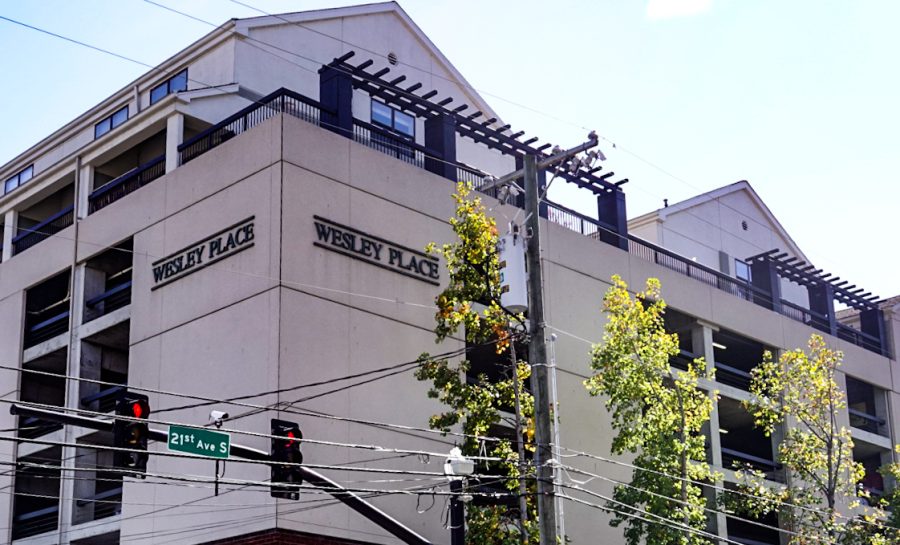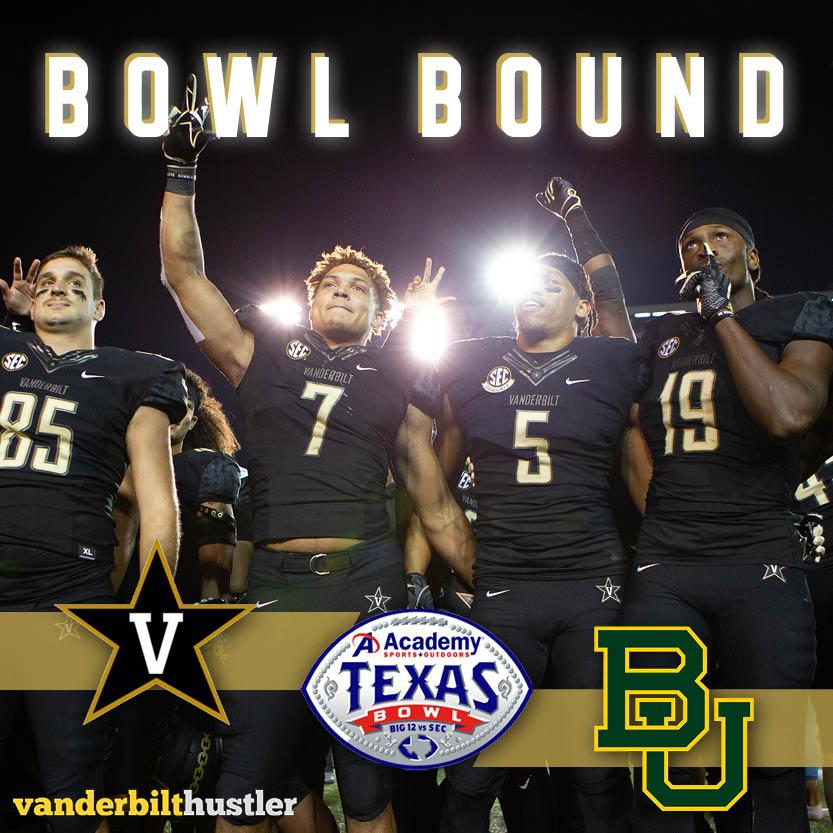The first football game means the start of tailgate season at Vanderbilt. With construction dominating the West End Neighborhood and national changes to fraternity health and safety standards, the state of tailgates is in flux.
This weekend, students can expect fraternities to utilize guest lists – in keeping with national changes to capacity allowances – for their tailgates, which have been relegated to the backyards. As the season progresses, Director of the Office of Greek Life Kristin Torrey said students will likely see different types of tailgates for different games.
“We won’t be able to have a consistent tailgating scenario for every game because the neighborhood is going to continue to evolve as the season goes on,” Torrey said.
To protect the front lawns that Vanderbilt recently planted at various houses in the West end neighborhood, fraternities will be required to confine their tailgates to their backyards. The backyards will have fencing to separate partygoers from construction sites.
In addition to construction pushing tailgates to backyards, new national standards from the North American Interfraternity Conference will limit the attendance at fraternity events with alcohol. The Enhanced Health and Safety Standards, now in their pilot year at NIC member fraternities nationwide, implemented a 3-to-1 non-member to member ratio for social events.
This means that at any time, Vanderbilt Interfraternity Council President Harith Alappat says, a chapter event may not have more individuals in attendance than 4 times the number of members. The change is part of a national fraternity effort to help risk and crowd management.
“While it may pose some challenges to event management and inclusivity efforts, our entire council is committed to implementing this policy and modifying it if necessary,” Alappat said in an email.
Sigma Chi president Callen DiGiovanni said his fraternity is concerned about the effect that the new policy will have on the chapter’s ability to be inclusive to all students at events.
“Even though the policy was implemented on a national scale with the health and safety of all students as the top priority, it inherently limits any chapter from welcoming a wide range of students into its tailgate or party,” DiGiovanni said in an email.
Matt MacDonald of Sigma Nu, however, told the Hustler that his chapter is not concerned about their inclusivity or access changing because the number of guests allowed under the rule is about the same as their facility’s capacity.
According to Torrey, IFC fraternities are required to create and submit guest lists for all events. Those lists are posted alongside the anchorlink registrations for each tailgate. However, Giovanni acknowledges that these lists may be perceived as exclusive.
While each fraternity tailgate will have a guest list, Alappat says the extent to which chapters enforce those lists is beyond IFC’s control.
“Individual chapters are given autonomy as to how they use the ‘guest list’ – some are very strict with its use, for others it’s a formality,” Alappat said.
Alpha Tau Omega President Ray Johnson said the school will be placing event staff at all tailgates to help count the number of people at the event. He said that ATO is trying to find a balance between allowing access to the event and respecting the new standards, so the fraternity plans to remain open to all until they near capacity, at which point they will be more strict with their guest list.
“This is obviously an issue of inclusivity, and one of the primary concerns for ATO,” Johnson said. “While we want to welcome anyone to our event, we also have to prioritize our close friends that we have personal relationships with.”
With the changes coming to the West End Neighborhood, ideas about potential new approaches to tailgating culture have also arisen. The possibility of community tailgates, in which other student organizations host gameday events in the West End Neighborhood has been discussed, though Alappat says those conversations will be more extensive once construction is completed.
Torrey said that once construction is complete and Kensington Avenue is accessible, there will be an opportunity for the student body to decide what sort of norms it wants to see around gameday celebrations.
“We’ll have a lot of great options for students, but it will still be up to them about the community and culture that students want to create around [tailgates],” Torrey said.
Eva Durchholz and Rachel Friedman contributed reporting for this story.
Updated Aug. 30 at 10:47 a.m. to reflect information from Kristin Torrey about the requirement of guest lists.
Updated Aug. 30 at 12:09 p.m. to correct “community safety officer” to “event staff.”


